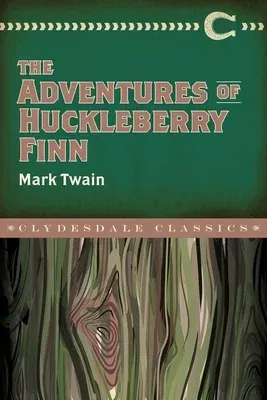Packaged in handsome, affordable trade editions, Clydesdale Classics is
a new series of essential literary works. The series features literary
phenomena with influence and themes so great that, after their
publication, they changed literature forever. From the musings of
literary geniuses such as Nathaniel Hawthorne in The Scarlet Letter,
to the striking personal narratives from Harriet Jacobs in Incidents in
the Life of a Slave Girl, this new series is a comprehensive collection
of our history through the words of an exceptional few.
Ernest Hemingway once said: "All modern American literature comes from
one book by Mark Twain called Huckleberry Finn. American writing comes
from that. There was nothing before. There has been nothing as good
since." Often referred to as "the great American novel," The Adventures
of Huckleberry Finn defined American literature with its richness of
characters, colorful vernacular, and vibrant depictions of the American
Midwest. Told in the first-person from the viewpoint of the classic
protagonist, the satirical narrative follows young "Huck" Finn as he
searches for escape and adventure along the Mississippi River.
The story begins where Twain's previous novel, The Adventures of Tom
Sawyer, left off: Huck and his friend Tom Sawyer come into a large sum
of money, and Huck is adopted by a middle-class widow who attempts to
civilize him. Accustomed to a poor, destitute existence and vagabonding
with his abusive alcoholic father, Huck quickly becomes dissatisfied
with the confines and rigidity of his new life. When his father returns
and begins to harass him for money, Huck is kidnapped and taken to his
father's cabin, where he longs to escape. After faking his own death,
Huck escapes to Jackson's Island where he meets a slave named Jim, who
is also running away. Together, they travel on a raft up the Mississippi
River in search of freedom.
An absolute, uncontested classic, The Adventures of Huckleberry Finn
is one of the greatest coming-of-age adventure tales of our time.

